
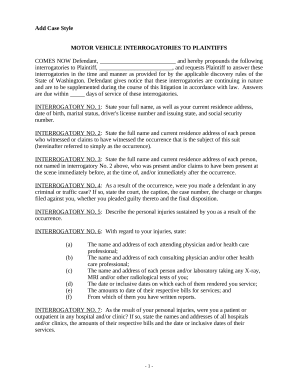
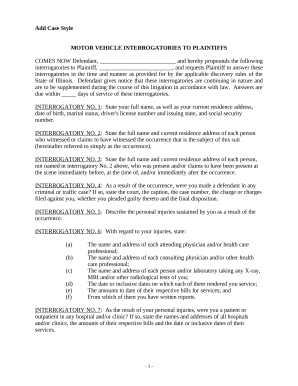
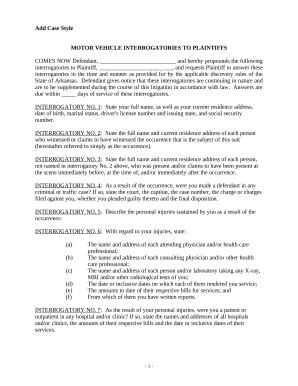
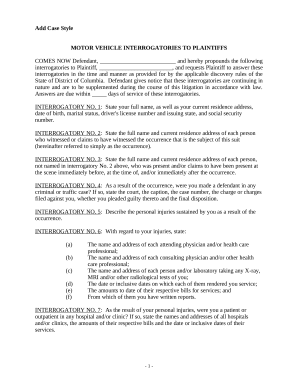


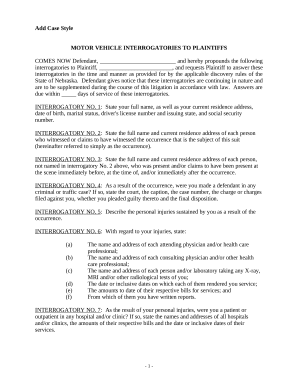
Your workflows always benefit when you are able to locate all the forms and files you may need at your fingertips. DocHub delivers a vast array of form templates to alleviate your everyday pains. Get hold of Plaintiff Interrogatories for Car Accidents category and quickly find your form.
Begin working with Plaintiff Interrogatories for Car Accidents in several clicks:
Enjoy smooth form managing with DocHub. Check out our Plaintiff Interrogatories for Car Accidents online library and get your form today!